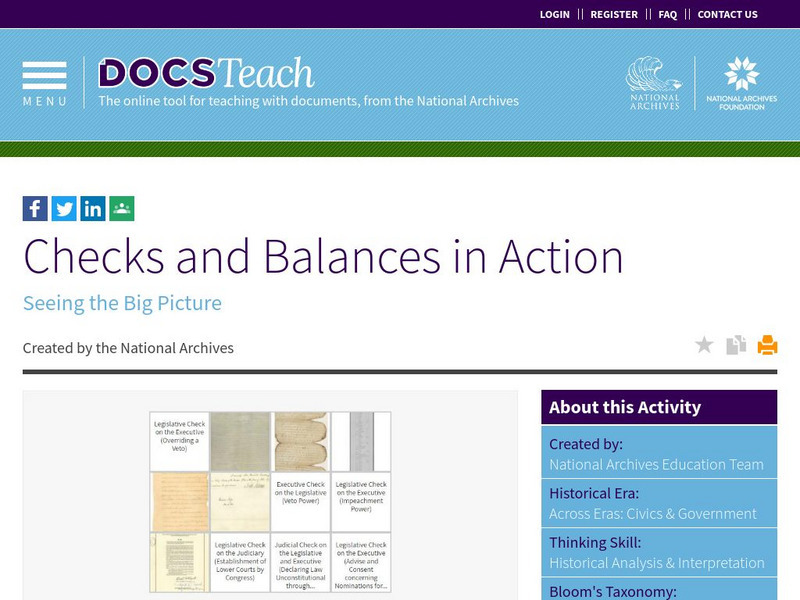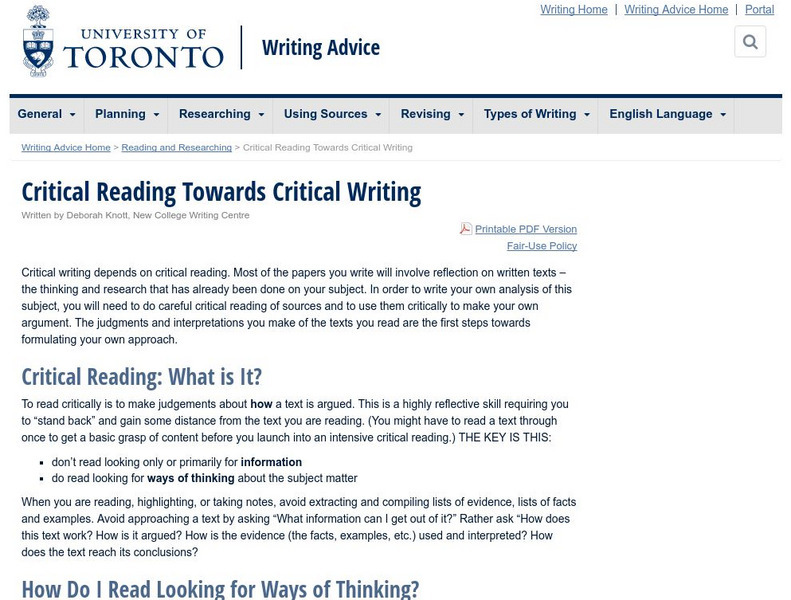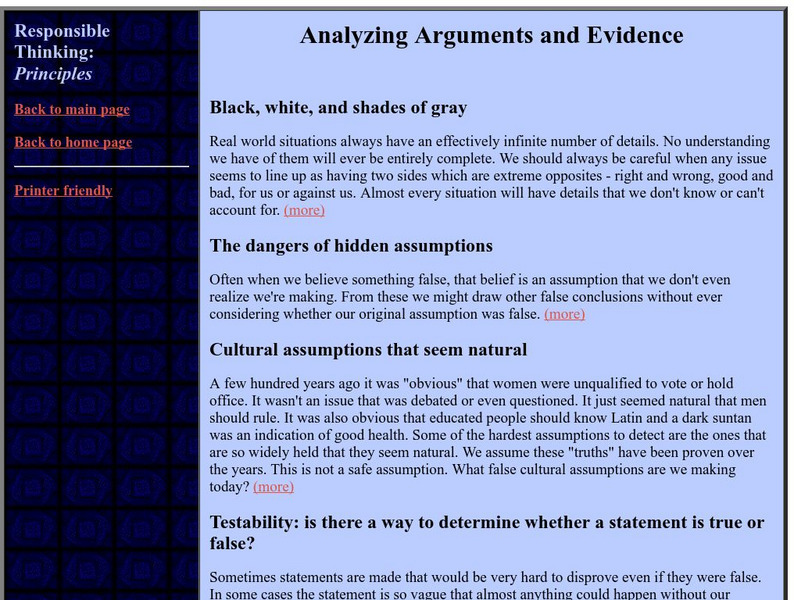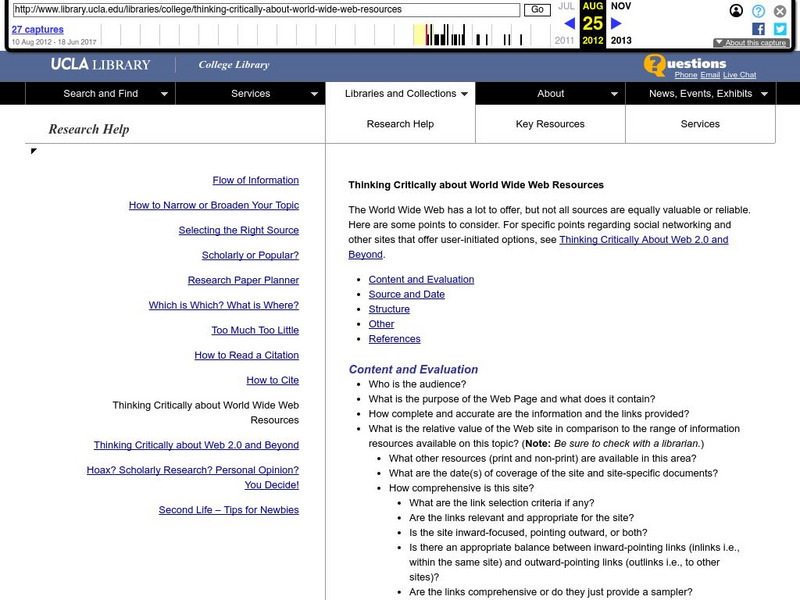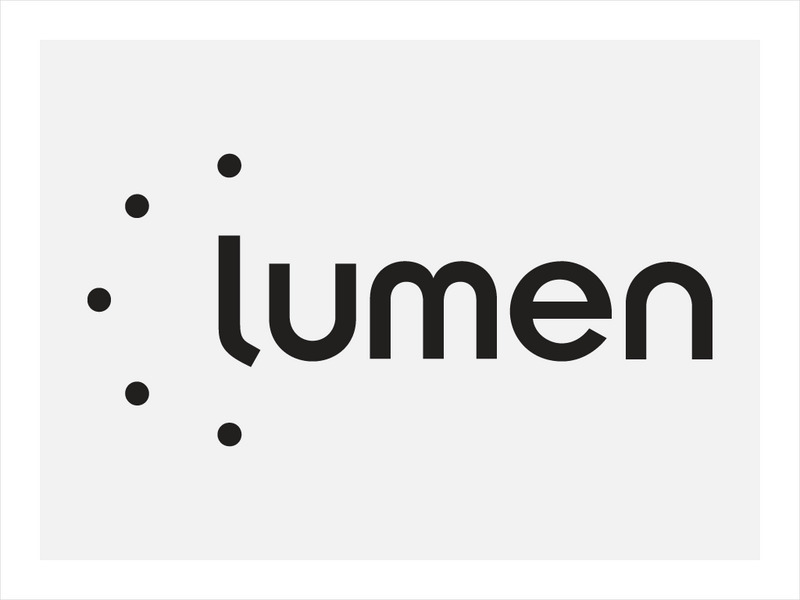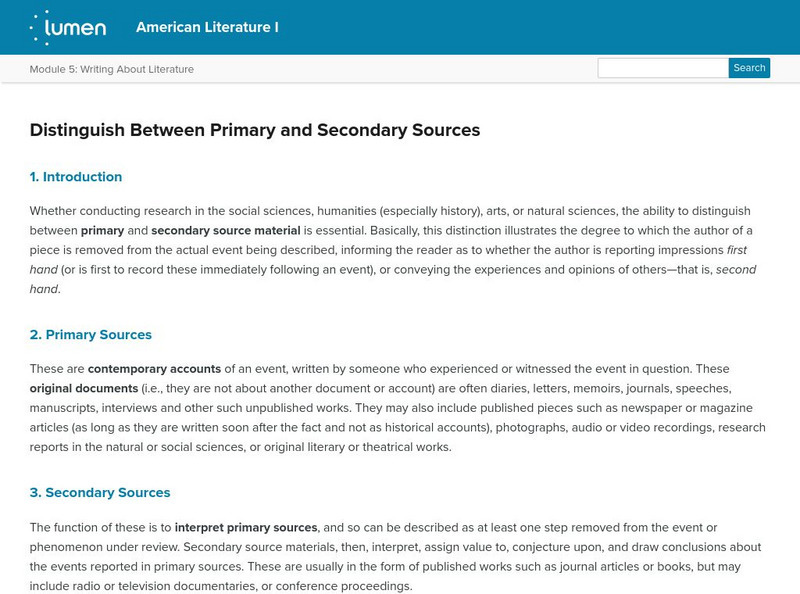University of Oklahoma
Congress as Grand Inquest
A thorough discussion of the implied investigative powers of Congress. Early precedents, as well as congressional tools to the process, are described at length.
Bartleby
Bartleby.com: The Spectator and the Tatler Compared
This encyclopedia article compares The Spectator and The Tatler and the moralizing tone of Restoration English journalism.
Johns Hopkins University
Johns Hopkins University Sheridan Libraries: Information and Its Counterfeits
Distinguishing information from propaganda, biased reporting and misinformation is an important skill. This short article defines each of these, and provides examples of each.
US National Archives
Docsteach: The Legislative Process: Congress at Work
Students will analyze historical records of the House and Senate to understand the sequence of steps in the legislative process. The students will work collaboratively to study documents and identify the step in the process that each...
US National Archives
Docs Teach: Checks and Balances in Action
In this activity, students will analyze documents that span the course of American history to see examples of 'checks and balances' between the legislative, executive, and judicial branches in action. Students will then match the...
US National Archives
Docs Teach: Separation of Powers or Shared Powers
In this activity, students will analyze documents that illustrate the relationship between the legislative, executive and judicial branches. Using the scale in Weighing the Evidence, students will decide whether the United States...
University of Toronto (Canada)
University of Toronto: Critical Reading Towards Critical Writing
Aimed particularly towards writing about non-fiction, this site describes ways to think about what you read so you can write more clearly. Focuses on analyzing the "ways of thinking" that an author uses so you can evaluate the validity...
Other
Compare Two Different Mediums
Student can demonstrate their mastery of this standards by using different assessments, short answer, or graphic organizer.
US Senate
Us Senate Select Committee on Intelligence
This Senate committee oversees the intelligence activities and programs of the United States Government.
Sophia Learning
Sophia: Bias
Notes introducing bias and demonstrating how to identify slight, moderate, and strong bias in a text. Notes can be both read and listened to.
Other
Responsible Thinking: Analyzing Arguments and Evidence
Contains many points to consider when analyzing someone's arguments and evidence, such as the hidden assumptions, cultural assumptions, and testability. Each is explained in a short paragraph with a link to additional discussions on...
Houghton Mifflin Harcourt
Holt, Rinehart and Winston: Writer's Model: High School Personal Narrative Example
This two-page essay provides an example of a personal narrative (Click on View Printable Version). Clicking on the "Writer's Guide" link in the upper right-hand corner of the page enables the user to get tips, directions, and...
University of California
Ucla College Library: Thinking Critically About World Wide Web Resources
This site teaches readers how to evaluate the content and quality of web resources, offering questions and checklists to consider.
Other
Fair: Retractions of Reporting Are Quite Selective
Interesting essay on the use of unnamed or anonymous sources, accuracy of reports, and retractions of innaccurate reports by major news outlets. Eye opener.
Other
Monash University Library: Evaluating What You Find
This site explains how to evaluate the information you find in your research and provides practice exercises. It includes three sections: Evaluating the reliability of sources, Academic research on the internet, and Evaluating academic...
Texas Education Agency
Texas Gateway: Analyze Shifts in Perspective in Informational/persuasive Text
[Accessible by TX Educators. Free Registration/Login Required] Explain shifts in perspectives in the same argument and make decisions about support used in those arguments.
Texas Education Agency
Texas Gateway: Analyze an Argument: Practice 1 (English Ii Reading)
Analyze the quality, relevance, and credibility of evidence that supports or opposes an argument.
Lumen Learning
Lumen: Analysis: Suspend Judgment
This article focuses on the need to suspend judgment and keep an open mind while analyzing a situation or researching a topic.
Lumen Learning
Lumen: Evaluating Sources: Introduction to Types of Sources
This is an introduction to evaluating sources and the types of sources available.
Lumen Learning
Lumen: Introduction to Writing About Literature
This is an introduction to writing about literature; it includes a list of learning objectives for writing about literature including finding and using historical sources to discuss the historical context, finding and using literary...
Lumen Learning
Lumen: Distinguish Between Primary and Secondary Sources
This lesson plan focuses on distinguishing between primary and secondary sources and evaluating them. It includes a list of questions to ask to determine the value of the sources under consideration.
Lumen Learning
Lumen: Finding and Evaluating Research Sources
This lesson focuses on how to find, evaluate, and use primary and secondary sources using printed and online sources. It provides practice writing activities such as examining the same topic through primary and secondary sources and...
Lumen Learning
Lumen: Writing About Literature: Finding Literary Criticism
This article focuses on how to find literary criticism including scholarly journals, citations from other works, a list of useful links to find sources, and TAMU libraries' website.
University of Victoria (Canada)
Uvcs: Critical Reading Exercise
Students read quotations from different "interest groups" or "lobbies" in this exercise and then perform a multiple-choice test to evaluate the credibility of each lobby group.






